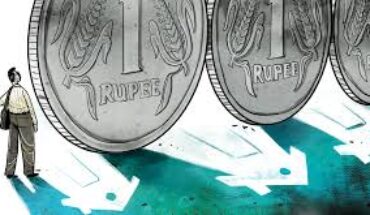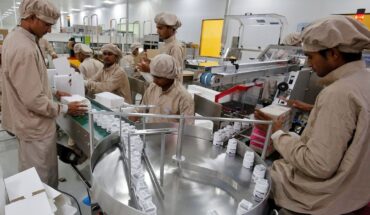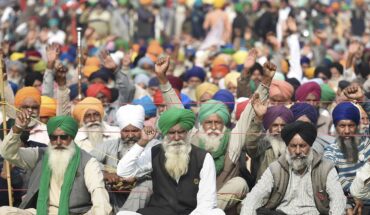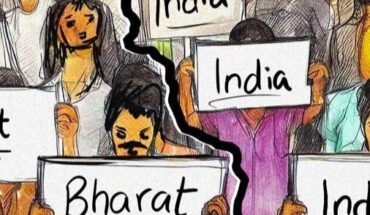Former Governor of Reserve Bank of India (RBI) Shri D Subbarao has advised the government to avoid the policy of freebies, because nowadays political parties motivate voters to vote in their favour by luring them with free electricity, free drinking water, monthly allowance to the unemployed, free distribution of laptops, smartphones, bicycles etc., to win elections and after coming to power, they empty the government treasury to fulfil the promises, due to which the financial discipline of the state and central government is negatively affected and due to spending money on freebies, developmental work gets affected i.e. the government is not able to make arrangements for roads, schools, hospitals, electricity, water etc., owing to which economic activities slow down and a decline is recorded in the growth rate.
In pursuit of freebies, state governments violate the limits of the Fiscal Responsibility and Budget Management Act (FRBM), which is detrimental to the financial health of the state. Under the FRBM Act, it is ensured that revenue deficit, fiscal deficit, and total outstanding liabilities do not exceed prescribed limits. If it is necessary to do so, it should be done only in case of disaster or exigency.
Mr. Subbarao says that due to freebies, some state governments are violating the FRBM limit, due to which the state governments are getting trapped in the quagmire of debt. Therefore, state governments and the central government should maintain financial discipline. According to Mr. Subbarao, the Modi government should build a consensus among political parties on the issue of stopping freebies and should not hesitate to present a “white paper” on the issue if needed.
There should be a deep and meaningful debate on this issue among all political parties and a concrete policy to stop freebies should be made and implemented as soon as possible. The public should also be made aware of the costs and benefits of free gifts. It should be the responsibility of the government to educate people about this. Also, in a poor country like India, it is also the responsibility of the government to provide every kind of security cover to the most vulnerable section and ensure that the poor or underprivileged people can become economically self-reliant without freebies.
Honourable Finance Minister Smt. Nirmala Sitharaman had recently presented to the public through a White Paper in the Lok Sabha the failures of the United Progressive Alliance (UPA) government during its 10-year tenure and the achievements of the Modi government during its 10-year tenure, so that the general public can decide which government has made earnest efforts for the betterment of the general public, society and country during its tenure.
A “white paper” is usually used by the government to present its policy priorities before introducing legislation and to gather public opinion on controversial policy issues. The government assesses the possible effects or consequences of policy decisions taken in accordance with the opinion and makes policy or law accordingly.
It is noteworthy that even before Mr. Subbarao, the Supreme Court had advised the government to stop freebies in the matter. Last month, the Supreme Court had asked the central government whether it was economically viable to promise freebies during election campaigns and implement them after coming to power. Some time ago, the Election Commission had also raised questions on the increasing tendency of political parties to promise to give freebies and then spend on freebies after coming to power.
Freebies weaken the basic structure of the economy and force the government to divert development priorities from its expenditure priorities. The sources of revenue of states are limited. Therefore, the state budget gets derailed due to freebies and the government has to take loans to complete the developmental works.
Today many state governments are in debt beyond the prescribed limit. Punjab has taken a loan of 53.3 percent of the Gross State Domestic Product (GSDP), which is the highest among all the borrowing states. According to the Central Bank, no state should have a debt of more than 30 percent of its GSDP. Apart from Punjab, Arunachal Pradesh, Bihar, Goa, Himachal Pradesh, Kerala, Manipur, Meghalaya, Mizoram, Nagaland, Rajasthan, and West Bengal also have debt much higher than their GSDP and the Reserve Bank has expressed concern over this.
Freebies affect free and fair elections by denying the rightful representatives to the Parliament or Legislative Assembly. As a result, appropriate laws are not made for the public, society, and country. When free electricity or other facilities are available, the public makes unnecessary use of the facilities, which leads to unwanted wastage of resources.
Some countries of Europe are facing economic crisis today because of the freebie culture. Our neighbouring countries Sri Lanka and Pakistan are also in bad economic condition because of this freebie culture. In the past months, thousands of crores of rupees were spent in Karnataka to fulfil the election promises, due to which a cabinet minister had to say that the government does not have money to complete the developmental works.
In this case, there is a need to define the difference between public welfare schemes and populist schemes. In this context, subsidies should not be considered as freebies. Subsidy is given to improve the situation of underdevelopment in any area. Even today there are many areas in India where expected development has not taken place. Therefore, it is necessary to provide subsidy to ensure development in the neglected area. For example, to promote renewable energy, subsidies are being given to install solar panels on roofs of houses or at other places.
A rule should also be made as to what percentage of the budget should be spent on public welfare works and it should also be ensured whether the public has benefited from the public welfare schemes on which money has been spent? If any public welfare scheme has not provided any benefit to the public or there has been no improvement in their standard of living, then there is no justification in continuing such schemes.
The public also needs to introspect whether they are benefiting from the freebies or not, if not, then they should not fall prey to such populist promises that the government will provide basic facilities like roads, electricity, water, schools, hospitals etc. available to the public. A laptop, smartphone or bicycle does not have a long lifespan, but implementing developmental works will benefit all sections of the society.
Apart from freebies, the government should also avoid giving benefits of schemes to corporates which are being misused on a large scale. For example, tax and interest rate concessions are often given to big corporates to accelerate development or to encourage a particular sector, but many corporates misuse such benefits, which are difficult to curb. This means that whatever the government spends, it should have a contribution in strengthening the economy while ensuring the development of the country and society.
Satish Singh, Ahmedabad based Senior Columnist,Views are personal






